The kids are going to have such fun learning with this Valentine’s Day candy heart experiment. It’s the perfect addition to your valentine activities for preschoolers.
There’s even a free printable recording sheet at the bottom of the post!
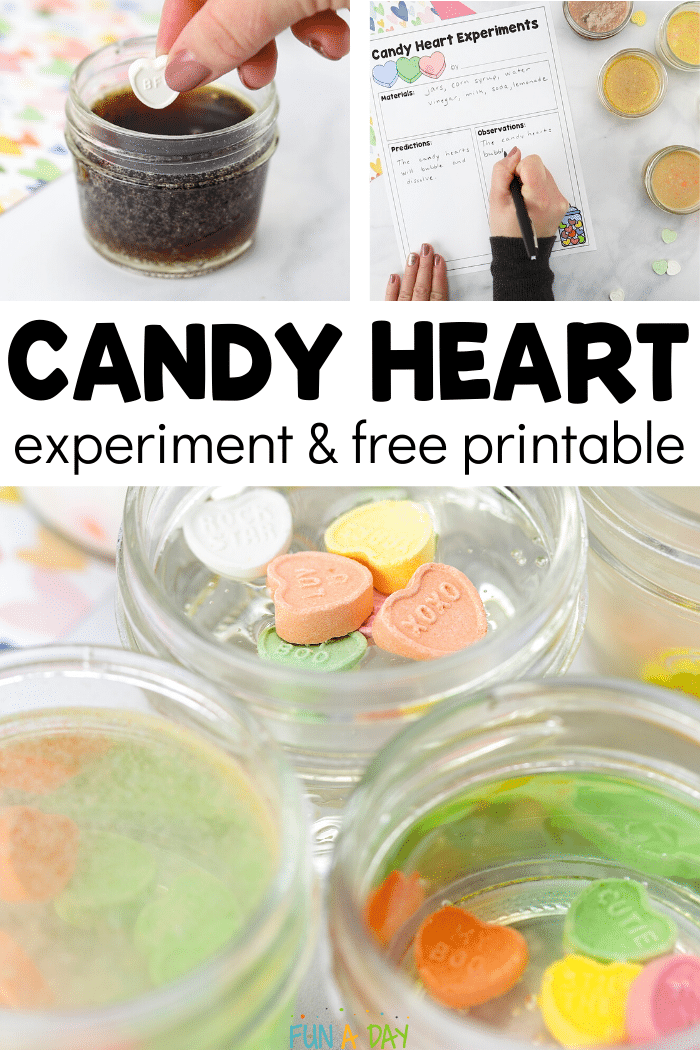
Related: Preschool Valentine’s Day Lesson Plans
I have something to admit.
I do not like conversation hearts! What do you think of them?
Those little hearts just don’t do it for me, despite my sweet tooth. Which is why it’s not unusual for me to have a half-empty bag of them leftover from the year before.
Nothing goes unused in a preschool classroom, so I love using conversation hearts in early learning activities. One of my favorite things to do with those stale candies is a simple candy heart experiment.
Related: Printable Number Cards for Valentine’s Day
Candy Heart Experiment
I’ve done this candy heart science experiment with a variety of preschool classes, and the kids always love it.
We start with one basic question. What do you think will happen to the conversation hearts if we put them in different liquids?
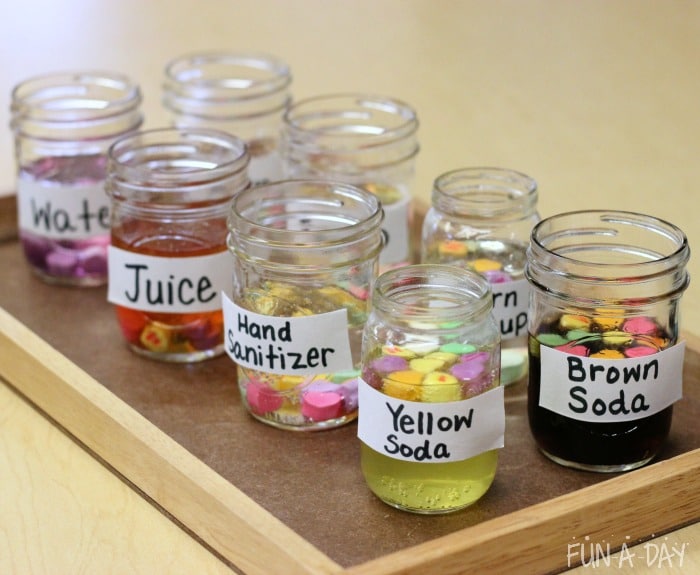
Related: Valentine’s Day Sensory Jars
Candy Heart Science Materials
To get things started, find some kind of container. Depending on the year, we’ve used empty bottles from our recycling stash, or glass mason jars. Grab what works best for you.
Next up is deciding on which liquids to use. Since this experiment is meant to be easy, I usually use liquids we have on-hand.
Some liquids you might want to use (I may get commissions for purchases made through links in this post):
This list of liquids is in no way exhaustive. Feel free to mix it up, get creative, or just use what you have on hand!
Conversation Heart Experiment Predictions
After settling on what liquids to use, it’s time to make some predictions.
Explain what a hypothesis is, and then ask the children to think about what might happen.
Take a little bit of time to record what the children have to say – on construction paper, on a white board, on chart paper, etc.
There’s a free printable recording sheet that you can download at the bottom of this post.
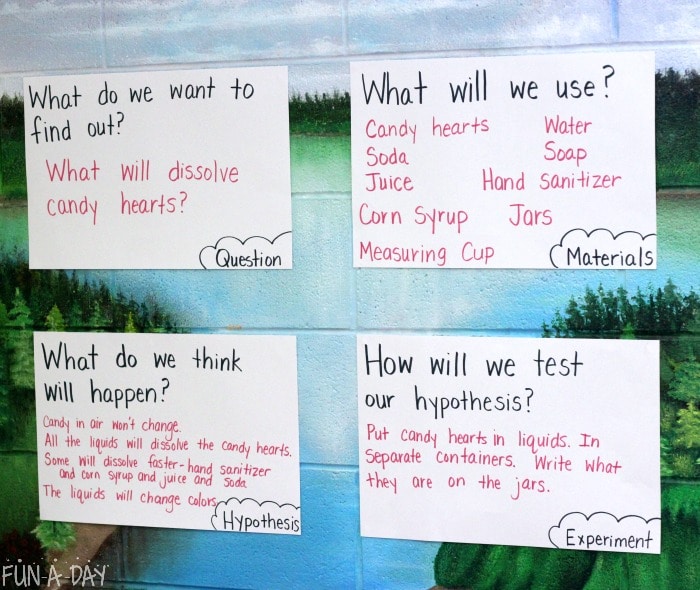
Related: Heart Name Crafts for Preschoolers
It is always wonderful to listen as the kids discuss what they think will happen. Sometimes, the predictions aren’t on topic, but most of the time it’s obvious the kiddos are really thinking about the possibilities.
I think my favorite prediction ever was, “The hearts will explode!” Although, “Maybe the hearts will sparkle!” is right up there at the top, too.
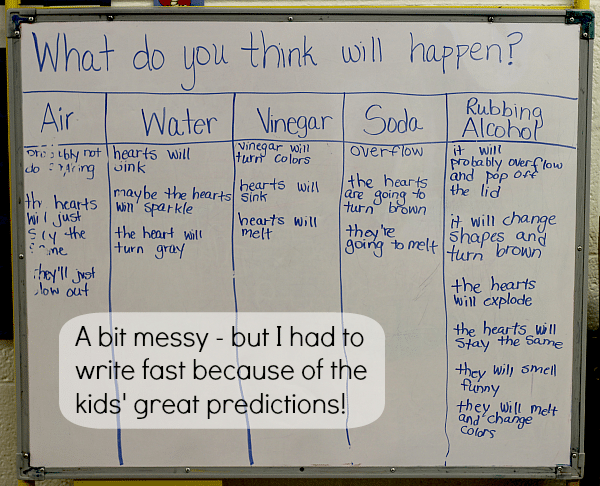
Related: Valentine Sensory Bin with Water Beads
How to Set Up a Dissolving Candy Hearts Experiment
Once the predictions are recorded, it’s time to get the experiment underway.
Put liquids into the containers you’re planning to use. Be sure to leave one empty for your “control”. I explain to the kids that our control container is so we remember what the candy hearts normally look like.
By this point, the kids are usually clamoring to add the conversation hearts to the containers of liquids.
We usually add about 10 hearts to each container, taking a moment to watch for any reactions.
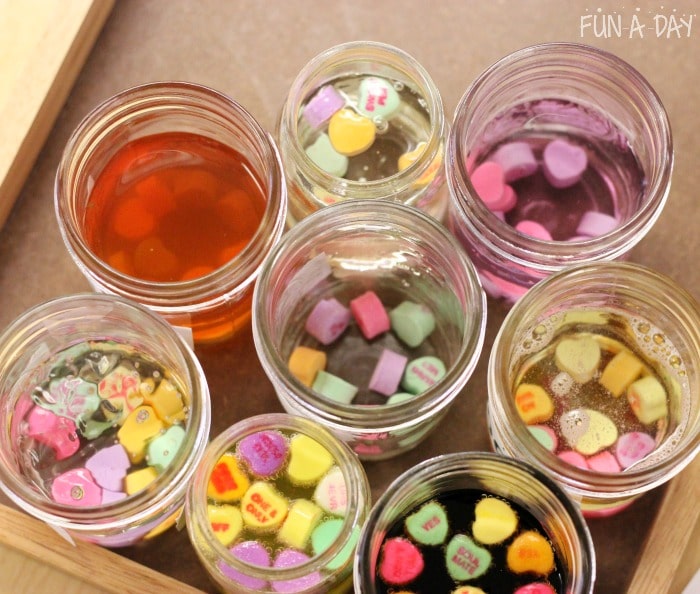
Related: Heart Print Valentine Art Project for Preschoolers
Conversation Heart Science Observations
Once the containers are filled, it’s tome to make some observations.
Be sure to record what the kids notice.
Set a timer for an hour or two, and then head back over and see if anything’s changed. I like taking pictures of the hearts along the way, and the children love helping with that part too.
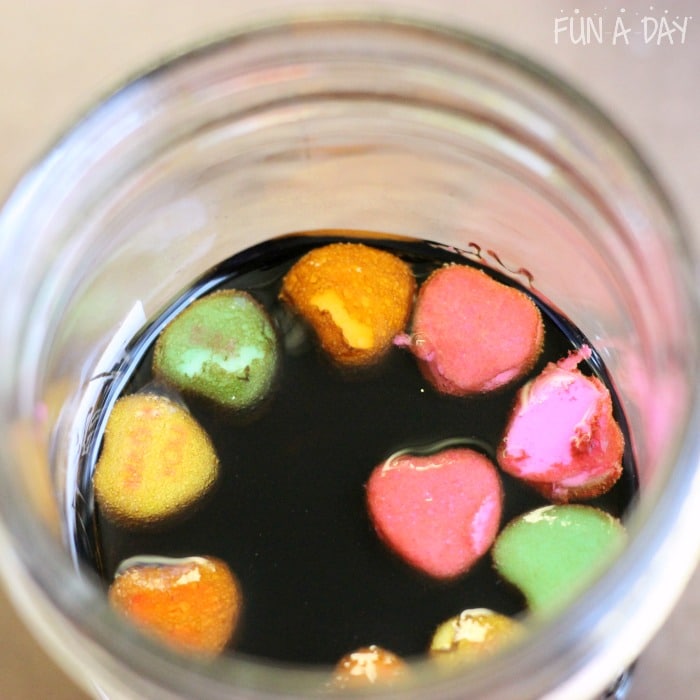
Related: Beaded Name Hearts Fine Motor Valentine Craft
From there, it’s up to you how long to let the candy heart experiment go on. We tend to let things go for a couple of days, observing and recording what we see.
Sometimes the kids like to “help” things along after a couple of days. And by help I mean, stir everything up. Yes, this means we end up with some goop in the containers, but it adds another layer to the experiment.
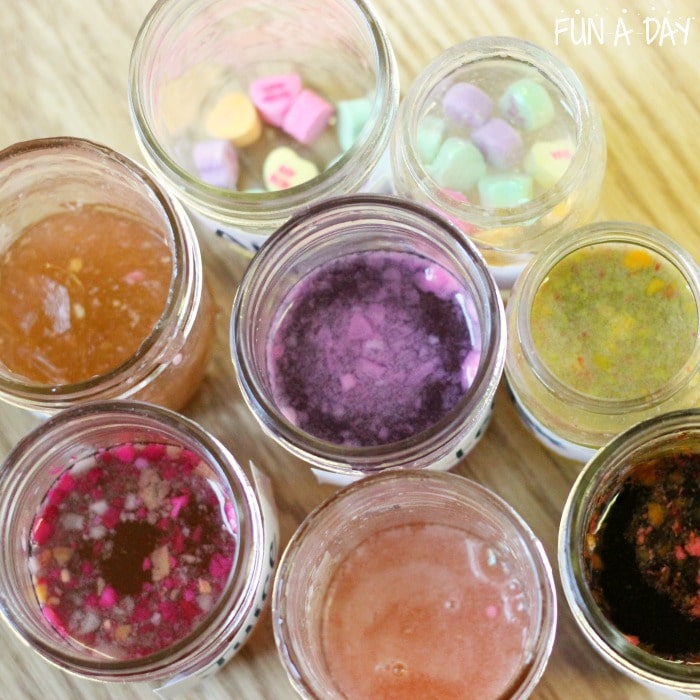
Related: Valentine’s Day Math Activities
Some of the observations kids have made over the years:
- “Look! Tiny bubbles are coming up from the hearts!” {Right away in the vinegar}
- “Hey, some of the hearts are floating now!” {After an hour or so in the water}
- “What’s all that extra stuff floating around in there?” {Commenting on the extra sediment that seemed suspended in the rubbing alcohol towards the end of the day}
- “They melted the fastest!” {The hearts we put in the soda}
- “These didn’t really do anything. But it sounds fun when I shake it!” {The container with just air and hearts}
- “What is wrong with these hearts? They aren’t melting at all!” {The hearts in the corn syrup}
Candy Heart Science Video Tutorial
Take a peek at what this science experiment looks like in action:
Candy Heart Experiment Recording Sheet
There are so many ways to change or extend this experiment. Change how many hearts are in the containers and see if the results are different. Incorporate even more liquids. Try different types of candy hearts. Etc.
One of my favorite ways to extend the experiment is with science journals. This way, each child can draw and/or write their predictions and observations along the way.
I’ve even got a handy-dandy free printable that’s available to my free email community to create a science journal for the kids. It can also be used as a simple recording sheet, too. If you’re a member, enter your email in the form below to have it sent to your inbox.
If you’re not, that’s okay too! Enter your information in the form to join us and you’ll receive the printable as a welcome gift.
You can also access the form in a new tab if you’d like.
Have you tried this candy heart experiment for Valentine’s Day? If so, what did you do and what were your results? I’d love to hear all about it in the comments below.
Preschool Lesson Plans for Valentine’s Day
Save time and get right to the playful learning with our printable lesson plan sets. Each set includes book suggestions, printable plans, over 30 learning activities (both whole group and centers) related to the theme, and corresponding printables.
Click on the photos below for more information:
You can also find us on Teachers Pay Teachers
More Valentine’s Day Science
This conversation heart science experiment has been a hit with children over and over and over again throughout the years.
And honestly I’ve never gotten tired of it. Not once. Probably because it’s always a little bit different.
It inspired me to compile this collection of Valentine’s Day science activities for you and your students!
Originally published February 11, 2014. Updated to add pictures from additional experiments and a video (and the free printable).
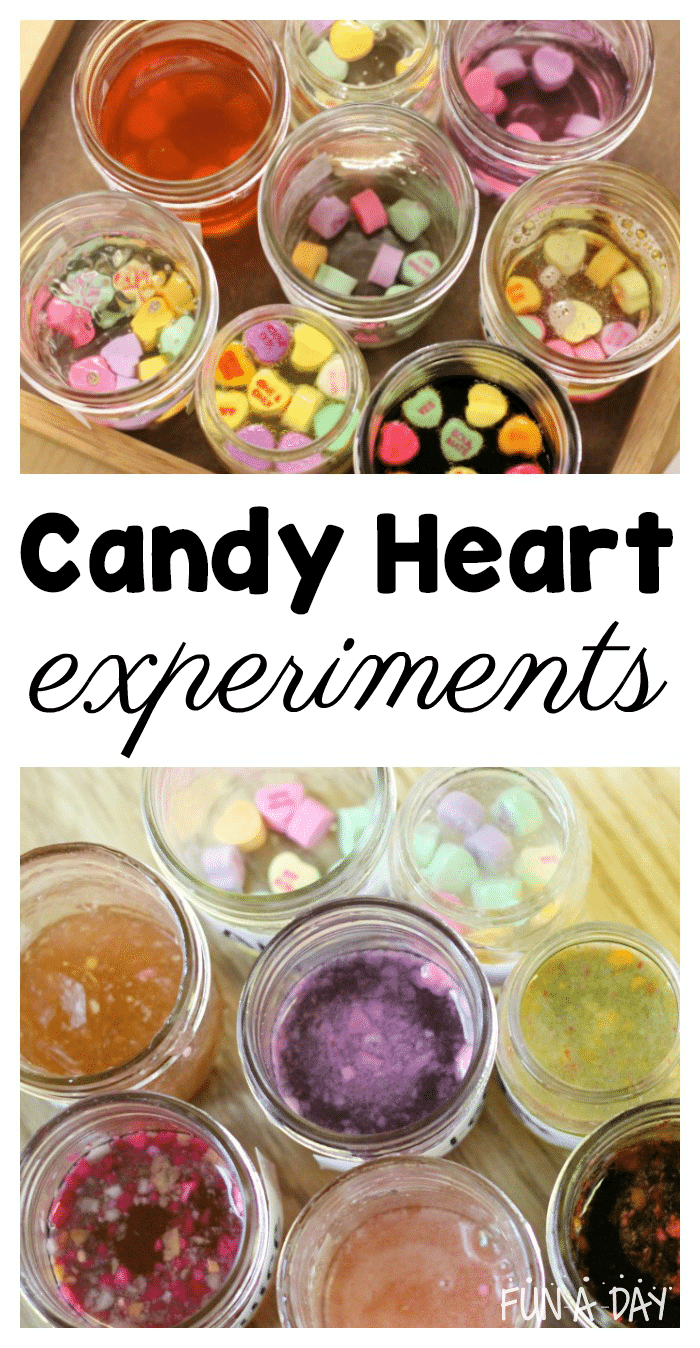
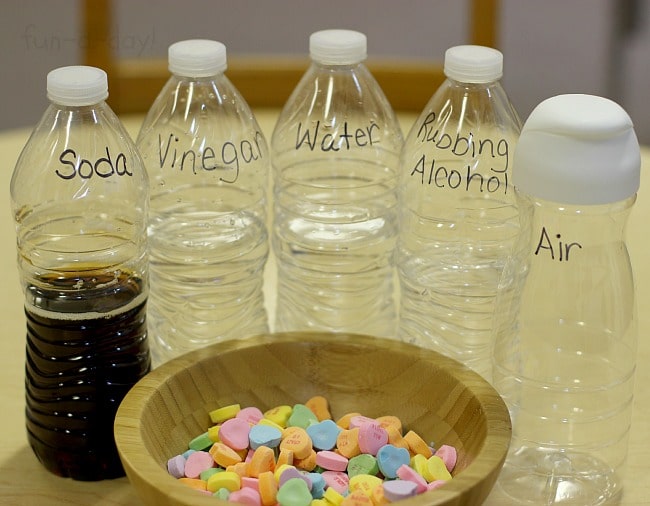
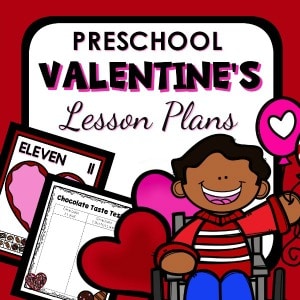
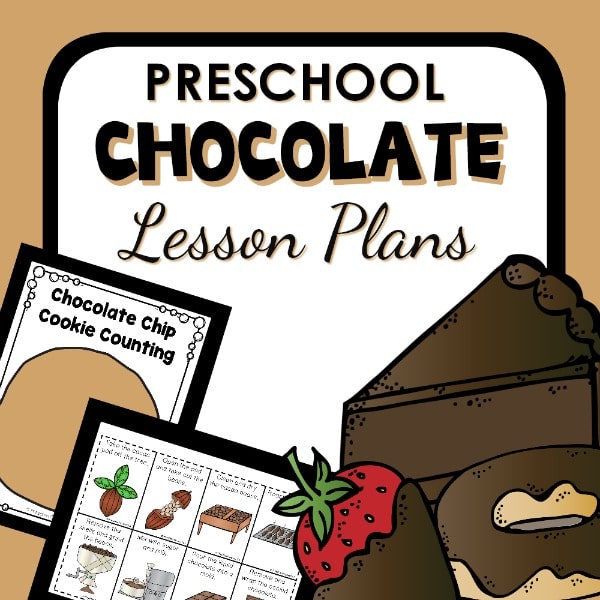
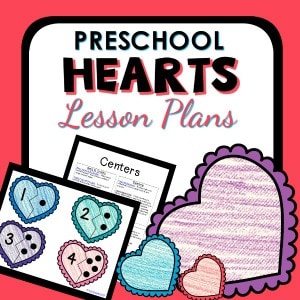
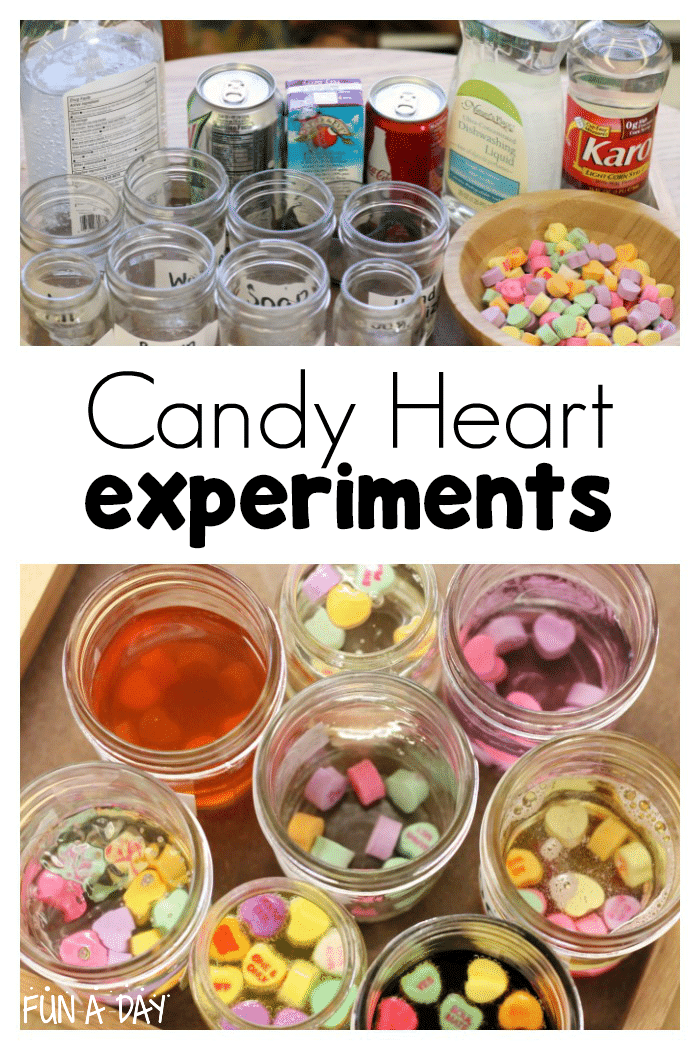
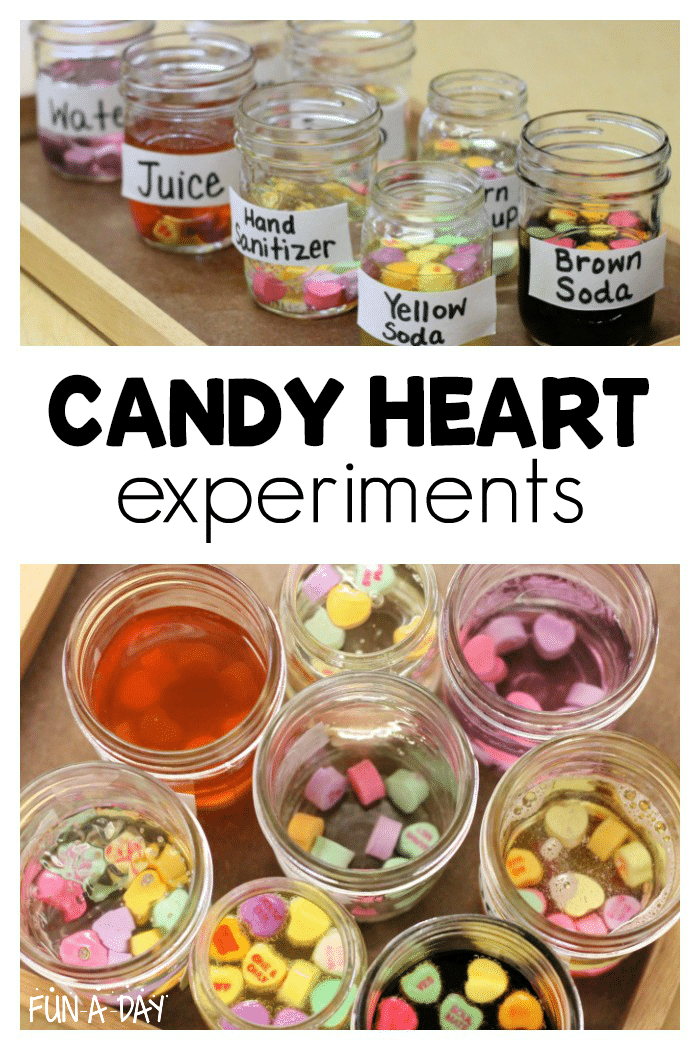
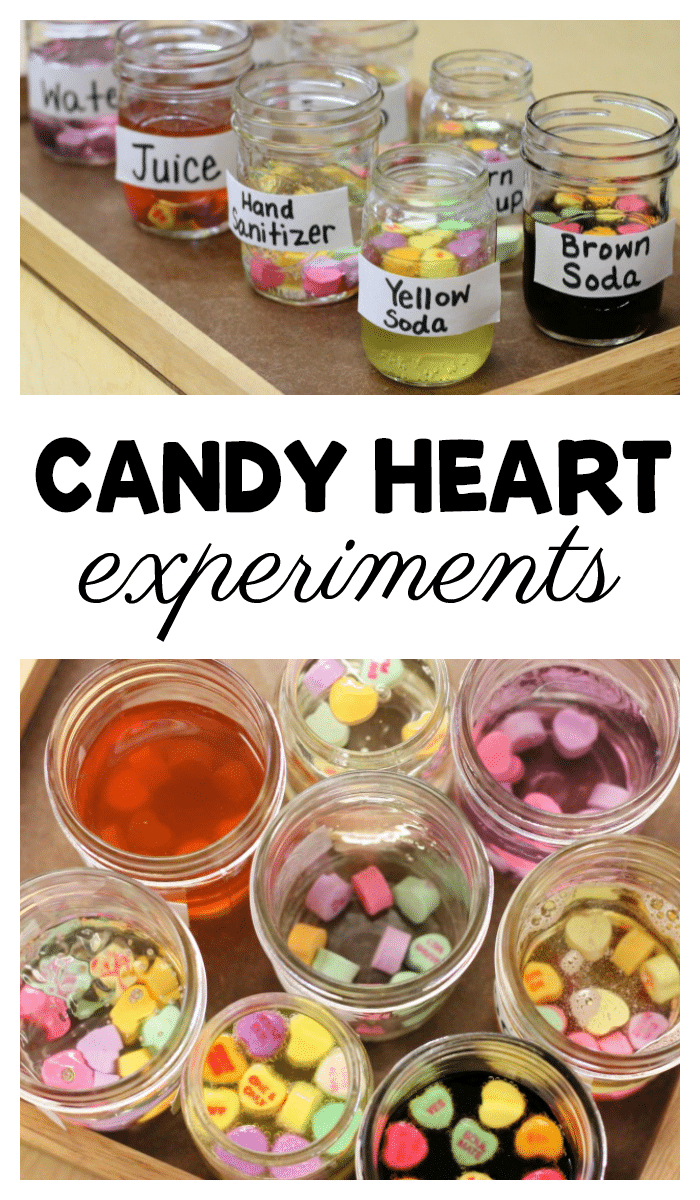
I love the idea of doing it in bottle to leave out for days!!!!
Thanks, Megan! We’ve added more hearts and watched the experiment over and over a few times already! Now the kids are pretending the bottles are “sprinkles” and “candy heart juice” for pretend play. 🙂
I agree – I’ve never been a big fan of Conversation Hearts. I’d rather experiment with them. This looks like such a fun project that you could even turn into a Science Fair project. What a great idea.
A big thanks too for sharing the link to our Valentine candy experiments.
Thanks, Susan! 🙂 Yes, I think the children would do a great job turning this into a science fair project. They were pretty keen about getting their predictions recorded, and they loved telling me all about what happened with the different liquids. 🙂 Happy to have shared your link — it was fun to see what other conversation heart science activities we should try soon. We still have another bag of stale hearts to use up!
Thanks so much for sharing. I have seen this done at Easter time with Peeps but like the idea with the Conversation Hearts, the change is more evident.
I appreciate you stopping by, Kasey! The changes were so very evident to the kiddos, and they really enjoyed watching as the experiment progressed. We’ve done it a few times already, and they’re still fascinated. 🙂
Great idea for students of all ages! I don’t care for the taste of candy hearts either (give me chocolate any day) but projects like this make me love the festive hearts!
I agree with you – I’ll take chocolate instead! But these conversation hearts are so much fun in activities!! 🙂 Thanks so much for popping over with your kind words.
What a great idea this is!!! I personally don’t like these candies but feel like I HAVE to buy them. Now I at least have a more of a purpose for them! I see what we will be doing for Science after Valentine’s Day.
We are doing this today in my 3rd grade class. So excited to see the kids reaction.
Awesome! 🙂
Is there a candy that can be used besides the candy hearts? We want to do this experiment for Week of the Young Child and I am not sure if we can find the hearts since Valentine’s Day has been over for a while…
Hi Melissa! You can try this with a variety of other candies, I’m sure. There are Easter candies out now that would work well. Smarties and marshmallows would be fun, too. 🙂
thanks i will use this for my science fair.
Wonderful! Let me know how it goes. 🙂
Finally, some good uses for these horrible candies. Lol 🙂
Hahahahaha! I feel the same way! 🙂
Hi. Could you help me locate the printable recording sheet for this activity. Thanks!
There’s a large button at the bottom of the post, along with a link you can click out to grab the printable. 🙂
I read that diet soda is less dense than water yet the hearts sank in water and floated in diet soda please explain
We didn’t use diet soda – we used regular soda and just labeled it “brown soda”. But now I’ll have to make a note to have the kids try it with diet soda too so we can compare!
I love this idea! Do you know how long it takes for the reactions to start happening? I’m wondering if I can do this with a group of kids in the span of an hour…
The kids LOVE this experiment (and I always find it fun too). You can see some reactions within an hour, but a few hours minimum would be better in my opinion. Let me know if you’re able to try it!
We are going to do this at our church’s “Welcome Wednesday” Valentine celebration. We’ll have about an hour with them at the event, but will save them for Sunday. Can’t wait to see what happens! Thanks for the great idea!
I’m so happy to hear you’ll be giving this a try! Let me know how it goes. 🙂